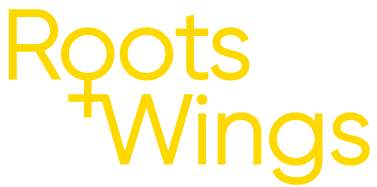Lost in Translation
Bridging the gap between millennials and their employers
“Millennials are so entitled.”
“That’s a typical millennial attitude.”
“I was never like this when I was their age. ”
If you’re involved in recruitment or management at your organisation, I’m prepared to bet you’ve heard (or maybe said?) something along these lines recently, usually accompanied by an eye roll.
A recent Gallup study titled ‘The Job-Hopping Generation’ found that the majority of millennials (55%) are not engaged at work. They are more likely than any other generation to move on to a new organisation within the next year.
Does this mean that employers are right to criticise millennial employees for a bad attitude? Or is this a management problem to solve? Spoiler alert: I think it’s the latter.
Not only is generalising a whole age-group lazy, it means you’re not getting the best from your team. Millennials now make up one-third of the workforce. For the charity sector, this means you are missing out on the potential of over 30% of your team in service of your mission.
I refuse to believe that millennials are any more or less entitled than other generations. I do think we (full disclosure: I was born in 1987 which puts me right in the middle of the millennial generation) are more used to speaking our mind without a filter, thanks to the internet and social media.
That’s not a bad thing in itself; the problem comes when what we say is misheard by our employer.
Here’s some examples of what I think is getting lost in translation:
“I feel like I’ve outgrown this organisation.”
Employer hears: “I’m too good to work here and you have nothing to teach me.”
Employee means: “I’ve learnt what I can in this role and you haven’t shown me what opportunities there are for progression.”
“I want to protect my work-life balance.”
Employer hears: “I’m not committed, I’m only here to do the bare minimum.”
Employee means: “I’m committed to taking care of my mental health and ensuring I don’t burn out.”
“I don’t believe this organisation is living up to its stated values.”
Employer hears: “I think the leadership are personally sexist and racist.”
Employee means: “It matters to me that the organisation I work for is committed to challenging systemic discrimination and tackling structural inequality.”
Listening is the way to bridge the gap
To retain millennial employees, leaders need to build genuine relationships, based on mutual trust. This starts by properly listening to what they are telling you, rather than reacting to what you think you hear with an eye roll and an internal comment about ‘typical millennials’.
Just like previous generations (and future ones!) millennial employees are individuals, with personal motivations and engagement drivers. To understand what is important to them and what will discourage them, you need to listen.
Some questions to start with:
What do you find most motivating about working for this organisation?
What’s been the most frustrating aspect about working at this organisation for you?
Which of our organisational/team values align to your personal values? Are there any that don’t?
If you could change one thing about working for this organisation/in this team, what would it be?
Remember these conversations won’t work as a one-off, or added on to the end of your annual performance review and never mentioned throughout the rest of the year. You need to build psychological safety and develop relationships grounded in trust and mutual respect.
I’d love to hear how you get on – drop me a line on lucy@rootsandwings.studio
Do you need support with developing and retaining talent on your team? Roots + Wings can help, read more about our services or contact us on hello@rootsandwings.studio for an initial chat.

